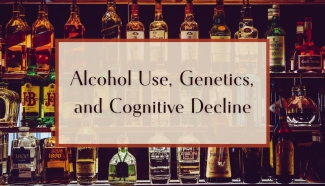
Pei-Chuan Ho's study explores the link between alcohol consumption and cognitive decline in older adults, addressing genetic endogeneity through polygenic scores. The findings indicate a positive correlation between heavy drinking and worsened cognitive outcomes.
Paper Abstract: Alcohol Use Disorder (AUD) is a major public health issue in the U.S., affecting 14.5 million people aged 12 and older in 2019, though only 7.2% sought treatment. AUD is linked to cognitive decline and dementia, placing a significant burden on individuals, families, and society. Both alcohol consumption and cognitive decline are often influenced by unobserved factors such as genetics and personality, raising concerns about endogeneity. To address the endogeneity stemmed from genetics, we used Health and Retirement Study (HRS) data to study alcohol consumption in individuals aged 50 and by taking advantage of the availability of both alcohol consumption behavior data and genetic information. By using polygenic scores (PGS), which summarize the genetic predisposition of alcohol consumption, we found some evidence of positive correlation between alcohol consumption and cognitive decline: heavy alcohol consumption was associated with worse cognitive status. Though it is still difficult to claim causal relationship between alcohol consumption and cognitive decline due to the complexity of unobserved characteristics related to both, our approach was able to alleviate endogeneity stemmed from genetics
Ho, Pei-Chuan. 2024. "Alcohol Use, Genetics, and Cognitive Decline." University of Pennsylvania Population Center Working Paper (PSC/PARC).